Glenn Langohr's Blog, page 11
February 28, 2013
Reading Renee: Roll Call by Glenn Langohr @rollcallthebook
Reading Renee: Roll Call by Glenn Langohr @rollcallthebook: Before I start I will say I am an avid reader and always fall for a good crime book. I love justice system books, and books about cops, ... Check out this awesome book review site! You rock Renee Giraldy! Thanks for the penetrating insight into myself and my first book Roll Call.PR Newswire articles
Published on February 28, 2013 09:41
February 23, 2013
The Dan O'Brien Project: Glenn Langohr Presents
The Dan O'Brien Project: Glenn Langohr Presents: Glenn Langohr spent 10 years incarcerated on drug charges where he changed his life through writing his novel Roll Call , now a big sel...
Check out this cool website that is promoting my books! Dan O'Brien helps a lot of northern California artists so I got blessed to get visibility there.PR Newswire articles
Check out this cool website that is promoting my books! Dan O'Brien helps a lot of northern California artists so I got blessed to get visibility there.PR Newswire articles
Published on February 23, 2013 12:42
February 16, 2013
Gangster Prison Life in California Exposed by Author Glenn Langohr
1) You refer to the term “Block Guns.” Could you describe these? I take it from one of your paragraphs, that they shoot some sort of inert charge (apparently made of wood) or blank round, but can also accept live ammo. Can you expound on that? Great question. I didn’t explain it well enough in Prison Riot. The prison guards in California State prisons have a supply of block guns in the gun towers. Each building has a gun tower that overlooks the interior of the building and also has a view of the yard where that building releases inmates. The block guns look like shotguns but only shoot wooden blocks. They don’t also shoot live rounds. The tower guards also have rifles that shoot live rounds that legally they are only supposed to use when inmates are using deadly weapons, not for fist fights. The block guns are used for fist fights. The wooden blocks are compacted into a circular shape about the size of a silver dollar but are a little thicker then a ping pong ball. The block guns are extrememly effective in part because of the noise. In the building, or on the yard, the echo “booms” so loud that inmates inside every other building on the yard can hear it. At Centinella State prison in Imperial Valley on the California and Mexican border, the prison yards are close enough together that inmates can hear the block gun go off on other yards. At Centinella it is an almost daily occurrence. As an inmate you become trained to expect it shortly after you hear the alarm go off, followed by the order by a tower guard yelling, “GET DOWN!! GET DOWN!!” and then, “BOOM!! BOOM!!”
To give you a feel for the prison politics at Centinella, the Mexican inmates are ordered not to stop fighting until the block gun has gone off. Most of the time they keep going for about 30 seconds after the “BOOM” for respect and effect. That means you can expect to see a fight or stabbing on the yard continue until the alarm screeches a whining noise that rises and falls in decibels, followed by the order to get down, followed by a swarm of a couple dozen prison guards running to the incident with about every third guard carrying a block gun. At close range block guns hurt bad and will knock the wind out of you and put you down. At more than around 40 feet the block begins to come apart. Seeing it up close so many times I can tell you that it breaks apart into circular rings and sizzles on the ground on fire from the explosion sending it. To purchase Prison Riot, A True Story of Surviving a Gang War in Prison, in Print for 9.99, Kindle for .99 cents or Audio Book for 6.97 go here~http://www.amazon.com/dp/B009K7IGOQ
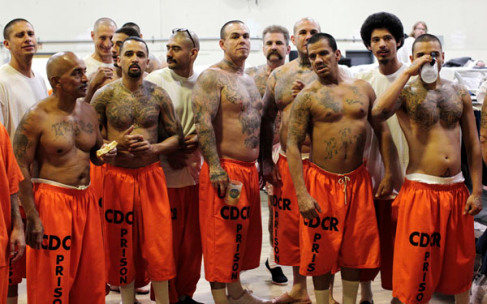
2) I find it interesting that in your descriptions of the riot – you make it clear that the guards are seen as a lower priority then the “enemy” inmates. Did you find that to be the case? In other words, was it common that an inmate would attack even at a time when an armed guard was standing there? With this question you are getting really deep into prison life politics. It is the most eerie feeling to know a prison riot is coming well before it comes. Now you are getting into a race riot or gang riot. I probably should have put the gang riot before the race riot because that is where the pressure and most of the decisions are coming from. I bring this up to answer what I think is your question, the prison guards don’t matter at all compared to orders. To give you a better understanding, pretend you are in a California prison and you are told by your race, “If you ever see another race attacking one of us, you have to help and fight. If you don’t, you will be considered weak and you will be attacked.” This is the common mentality of every single race and to me, an ex prisoner of over 10 years, understandable and respectable. I guess to fully understand this kind of thinking you either have to be there or have a deep enough imagination to picture being housed race by race as far as who is in each cell. To watch your own race get outnumbered and attacked and possibly killed while you are just watching, is a guarantee that you will be attacked by your own race later as a form of discipline and order. So in that regard, as an inmate, the guard with the gun in the tower, or even 10 feet away in the chow hall, isn’t there.
Since we are getting so deep into prison life politics amoung races and gangs I will explain it as it relates to other then race war and gang war situations. Lets say that I’m a White inmate and I watch another White inmate get attacked by a group of Black inmates and instead of rushing to his aid, I follow the guards orders to “GET DOWN!!” and just get on my stomach and watch the pummeling. For being in the area and not helping, I am in big trouble. In that situation, when the order is given to get me, the inmates will “pick a spot” to “handle the business”. That means that it will be done on the yard if possible as far away form the guards as possible. At times that just isn’t possible and we call those “suicide missions”. It gets much deeper but you get the jist.
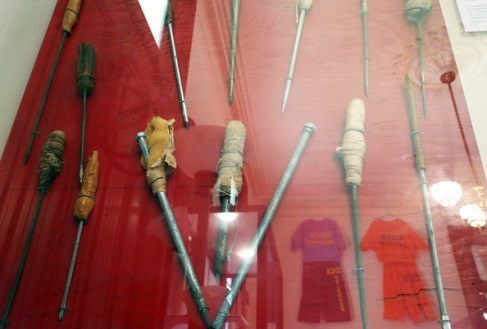
3) There has been a lot of discussion in the tech world and the media – over the past decade – of use of non-lethal but highly effective methods of stopping this kind of thing. Stuff like foam, high-pressure water, low frequency sound and pancake bullets – that sort of thing. In your experience, was any of this newer technology ever employed, or did the guards stay within the older framework of guns and gas? Finally an easier answer. While I was in prison from 1990 on and off through 2008 before I found a new path in writing books, I saw some changes in those deadly force measures. Keep in mind I’m talking California State prisons. First of all, the pepper spray works! It isn’t the kind of pepper spray you can imagine if all you are used to is what the police use on the streets. California prison pepper spray at one point killed a number of inmates because it was so pure that it stopped peoples breathing, caused shock and heart attacks. Somewhere in the mid 1990’s they finally toned it down slightly. Don’t picture a little pepper spray bottle, picture a small fire extenquisher. Picture inmates drenched in so much pepper spray that it looks like they have been painted orange. I’ve seen white shirt and bald heads completely drenched in dripping orange fire. The pepper spray is so strong that if a fight is going down in the building all of the inmates inside the cells will start coughing. They will stand at the cell watching with their faces covered with shirts like bandanas. The next level of force was the old fashioned billy clubs. New laws changed the shape of them from the same kind the police use on the streets to higher tech ones that are spring loaded and eject a thinner steel outward. Those dissappeared later. As mentioned earlier the guns start with the block guns and graduate to “LIVE ROUNDS COMING NEXT”, usually with that exact warning. I have finally got around to writing about life at Centinella, where I spent my last amount of prison time and will use an example of a respectable gun tower guard. I made it my business to develop conversations with gun tower guards because I figured they would see me in a human light. I tried to pick their brains and make them laugh. One prison guard I talked to was an ex military sharp shooter. When the Mexican inmates and Black inmates went off in a yard riot that everyone knew was coming, that tower guard never fired a live round. That riot was a very serious one and prison made weapons were scattered all over the yard. More than a dozen inmates had puncture wounds from being stabbed. He probably should have fired live rounds, even if he only fired into the ground. But he had a lot of pressure on him to dance that fine line of which inmates can I righteously say are trying to kill. Later he was laughed at by many of the other guards as weak. That Mexican and Black war was a long way from done. The next time they came off lockdown to wage another round that same guard fired a live round in a smaller riot. He fired it through the middle of the basketball backboards right where the red square is.
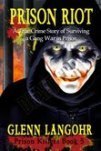
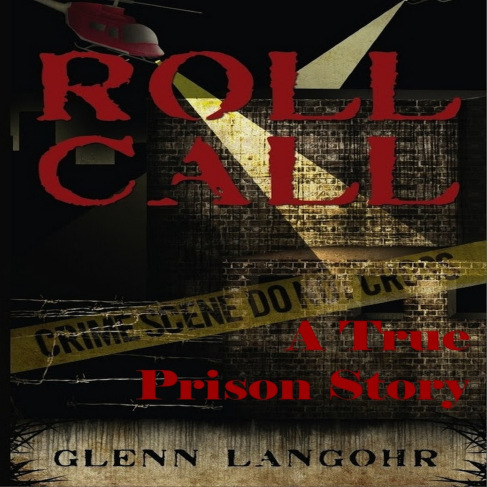
4) You have that part right on. In a riot like that they take everyone in the area and sort it out in ad-seg. To be found guilty of “being a combatant” it takes the written reports of eye witness accounts from the guards, pepper spray proof dripping off the inmate, injuries, hand evidence from punching or using a weapon and the very rare testimony from another inmate.5) It’s clear to me that the financial rewards benefit the guards in these situations. Overtime, Hazard pay, etc. Bearing in mind that neither of us are corrections professionals, in your opinion, were the guards complicit in these riots? Did they see the financial benefits as incentives to foster dis-harmony among the many inmate groups ? Fantastic queston and hard answer. Yes I have painted that picture in a number of my books that this is the case and does happen, and yes it does happen. However, it is rare where the guards do it in an evil way. For people who haven’t been there, this must be so hard to understand, but even the prison guards become affected by all the violence and pressure. There are so many examples I can use of this but to be fair to how hard their job is, they can know a riot is coming just as well as the inmates because a tiny percentage of the inmates send them written notes telling them it is going to happen, yet they can’t stop it. What are they going to do, ship hundreds of inmates to other yards every time? I have been on over 25 different prison yards. In my experiences I have seen guards get evil and instigate wars to continue by what they say while we are locked down. Win one side wins a yard fight in a big way, lets say the Mexican inmates are attacked by the Black inmates and get their asses handed to them, and a Mexican veteran prison guard says things in the building like, “You guys aren’t getting off lockdown for years. You know that if you mess with one bean you get the whole burrito.” That is putting pressure on both races to keep the war going. The prison guards and gun towers can pop cells open inside the building where both races are let out in those situations and the war reignites with what is called, “On site orders.” That kind of situation keeps the yard on lockdown and that hazard pay time and a half continues. Again, to be fair to the 99% of the prison guards who don’t deserve to be painted this way, it is a rare fact of California prison life. But, besides the extra money incentives, and overtime control, the prison guards are following a divide and conquer strategy because they would rather see the inmates fighting against each other versus fighting them!
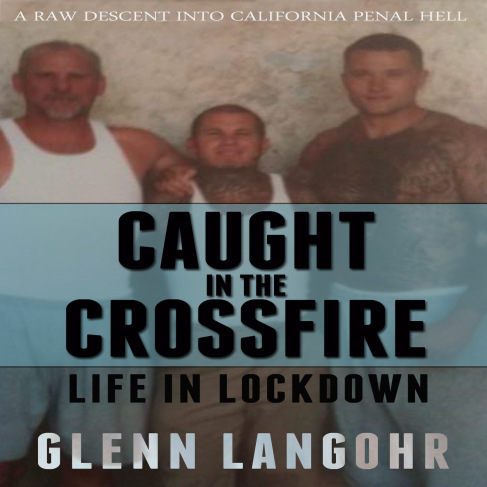
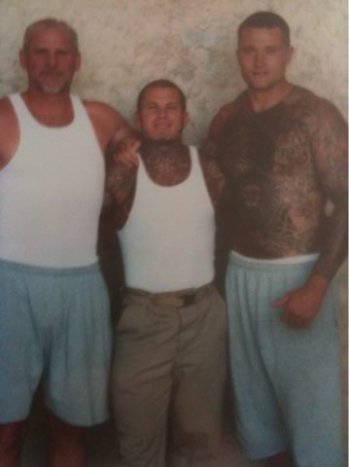
6) There are 3 reasons that I can see for becoming a prison guard. A) One could have an anti-crime hard-on. Say one’s family or one’s self were victims of crime, for example. B) Money. It’s possibly the best paying and most in demand area of law enforcement. C) A genuine desire to help people turn their lives around. However, several psychological experiments conducted over the last half century would indicate that regardless of the motivations for joining up, the tendency is to move towards a culture of cruelty and corruption. Based on your experience, would you say you found that to be true? Were there any guards that you thought highly of? Yes I found many that I respected and thought highly of. Most of those either usually looked like they could have been in prison themselves, and or they were militarily trained pros. As mentioned earlier I studied them like my life depended on it and this became getting to know them through conversation. In California prisons you have regular prison guards, tower guards, free staff workers who work the clothing, food and other shops, Inmate Gang Investigators, Security Escorts, Special Teams for searches and cell extractions and Counselers that go all the way up to the Warden. They are hardly ever all on the same side themselves. Inmates are constantly studying this angle to find cracks in their structure. How do you think all the cell phones are landing in prisoners hands? How about a percentage of the dope and pretty much all of the tabacco? How about inside info? For the most part most of the prison guards are there to earn a paycheck. On the serious level 4 yards where the inmate population is more then half lifers, there isn’t much room for a prison guard with a hard on to be disrespectful to inmates because he knows he will get stabbed. In a place where violence and pressure are a constant moment by moment, 24-7 affair 365 days a year, the senses are hardened and the culture becomes emotionless.

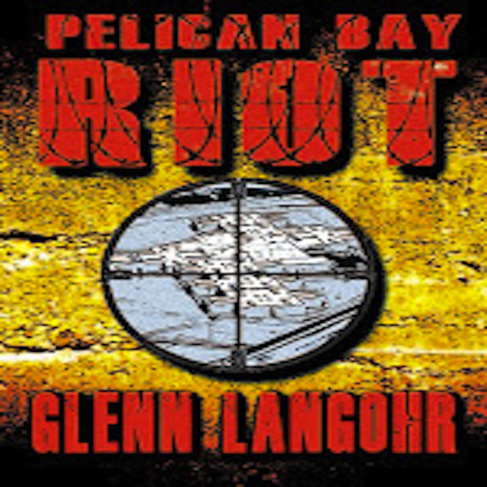 7)
What is the relationship between I.C.C. and the store? You waited for a long time to get I.C.C. so you could buy essentials like toothpaste and deodorant. Why is it viewed as necessary for an inmate to be classified before he’s allowed store privileges?
Because an inmate has to “Be classified “ to a certain level for yard and store priviledges. I.C.C. is a collection of prison administrators mostly made up of counselors who do the paperwork. That part of the process is where they determine special needs situations. Lets say that an inmate gets off the bus and enters a prison, that person has to be cleared for yard before they get to go to yard and get store. I.C.C. looks through the file to determine if there are any enemies or reasons not to put the inmate on the yard. For instance, a well know rapist, police officer doing time, or even Charlie Manson, can’t just be put on a mainline prison yard because they are all consided, “points to earn” and will get stabbed. For that and many other reasons, I.C.C. keeps inmates locked down, without priveledges, until that process is determined. Once determines and you are on the mainline and a riot or any form of discipline puts you in the hole-ad-seg (SHU) you have to go through that process all over again to get yard and store in there.
7)
What is the relationship between I.C.C. and the store? You waited for a long time to get I.C.C. so you could buy essentials like toothpaste and deodorant. Why is it viewed as necessary for an inmate to be classified before he’s allowed store privileges?
Because an inmate has to “Be classified “ to a certain level for yard and store priviledges. I.C.C. is a collection of prison administrators mostly made up of counselors who do the paperwork. That part of the process is where they determine special needs situations. Lets say that an inmate gets off the bus and enters a prison, that person has to be cleared for yard before they get to go to yard and get store. I.C.C. looks through the file to determine if there are any enemies or reasons not to put the inmate on the yard. For instance, a well know rapist, police officer doing time, or even Charlie Manson, can’t just be put on a mainline prison yard because they are all consided, “points to earn” and will get stabbed. For that and many other reasons, I.C.C. keeps inmates locked down, without priveledges, until that process is determined. Once determines and you are on the mainline and a riot or any form of discipline puts you in the hole-ad-seg (SHU) you have to go through that process all over again to get yard and store in there.
 8) I get that it was terribly important for the I.C.C. to classify you as what you were – White inmates, but could you spell out for our readers why the Southern Mexican label would have been so detrimental.
In the true story I wrote, Prison Riot- I was involved in a massive riot that made the news at Solano in 1998. The southern Mexicans were outnumbered by the northern Mexicans and my friend Steve Smith, also known as Giant and myself decided to lend a hand to the southern Mexicans because we were friends with many of them. Let me make this very clear, I’m a White man who doesn’t gang bang, claim a gang and helped them because I don’t like to see people bullied or outnumbered. Giant felt the same way. The problem with being 2 White guys in the midst of almost 100 Mexicans at war in a riot is that the prison guards had to assume we were what is called, “Sleepers” who were Mexican gangsters. The massive problem for us as White inmates to be classified as southern Mexicans in the hole is that when our SHU term ( length of time in the hole for the riot ) ran its course, from that point on we were going to be housed as southern Mexicans. That is a massive problem. Imagine getting off the bus at a new prison and being put in a cell with a southern Mexican and having to tell him, “Look I’m sorry to disturb you but I’m a White inmate so please don’t tell me about who you guys are stabbing tomorrow.” You get the point. On the other side of that coin you are also going to have to explain to the rest of the White inmates that you are indeed a White inmate!”
8) I get that it was terribly important for the I.C.C. to classify you as what you were – White inmates, but could you spell out for our readers why the Southern Mexican label would have been so detrimental.
In the true story I wrote, Prison Riot- I was involved in a massive riot that made the news at Solano in 1998. The southern Mexicans were outnumbered by the northern Mexicans and my friend Steve Smith, also known as Giant and myself decided to lend a hand to the southern Mexicans because we were friends with many of them. Let me make this very clear, I’m a White man who doesn’t gang bang, claim a gang and helped them because I don’t like to see people bullied or outnumbered. Giant felt the same way. The problem with being 2 White guys in the midst of almost 100 Mexicans at war in a riot is that the prison guards had to assume we were what is called, “Sleepers” who were Mexican gangsters. The massive problem for us as White inmates to be classified as southern Mexicans in the hole is that when our SHU term ( length of time in the hole for the riot ) ran its course, from that point on we were going to be housed as southern Mexicans. That is a massive problem. Imagine getting off the bus at a new prison and being put in a cell with a southern Mexican and having to tell him, “Look I’m sorry to disturb you but I’m a White inmate so please don’t tell me about who you guys are stabbing tomorrow.” You get the point. On the other side of that coin you are also going to have to explain to the rest of the White inmates that you are indeed a White inmate!”
 9)
I’d be very interested in some of your views regarding the impact of America’s drug war on these racial politics within the prison system. Could you give me a brief paragraph showing a connection between the Drug Culture in the U.S. and the struggle as it is currently playing out in Mexico – and could you tie that to the California prison system?
Perfect question to add to the last one to show you how crazy it is because of the drug war and the direct connection to it breeding more violence and gangs under the current policy where we incarcerate drug offenders! In California prisons southern Mexican inmates are under enormous amounts of pressure to straight up be gangsters, and that breeds an army of gangs. That is also the case for every other race, maybe to a lesser extent. The amount of gangs in southern california is staggering and their reach is long. By not getting to the root of the problem, drugs and poverty, prison is the breeding grounds. People see the news that the Mexican cartels are powerful and they don’t understand that in California’s prisons, those cartel members don’t have the most influence. So if I’m in a cell with a southern Mexican all of those polics are crossing into a White imates loyalties. Back to the drug war breeding gangs. By incarcerating low level drug offenders we are breeding an addiciton into an affliction much harder to escape, where gangs and violence are the calling cards. The problem gets bigger when these displaced, tattooed down, harder to get a job, mentally taxed from post tramatic stress, human being get released without any job training or housing placement. Now you mentioned Mexico’s drug war also. Most people don’t know this but in Mexico it is legal to have up to an ounce of meth, herion, cocaine etc, you just can’t bring it to sporting events or sell it! I used to hear this on the radio in my cell in Centinella on the border of Mexico and scratch my head in exasperation. But guess what, by decriminalizing drugs you take the power out of them! Look at Canada, their policing of drug addicts is more of a nursing program to get them into treatment. If we treat drug addiction as a disease, which it is now looked at like alcoholism, we are being not only smarter, but more humane. We shouldn’t call drug addicts criminals. For those of you with kids who have become addicted you understand.
9)
I’d be very interested in some of your views regarding the impact of America’s drug war on these racial politics within the prison system. Could you give me a brief paragraph showing a connection between the Drug Culture in the U.S. and the struggle as it is currently playing out in Mexico – and could you tie that to the California prison system?
Perfect question to add to the last one to show you how crazy it is because of the drug war and the direct connection to it breeding more violence and gangs under the current policy where we incarcerate drug offenders! In California prisons southern Mexican inmates are under enormous amounts of pressure to straight up be gangsters, and that breeds an army of gangs. That is also the case for every other race, maybe to a lesser extent. The amount of gangs in southern california is staggering and their reach is long. By not getting to the root of the problem, drugs and poverty, prison is the breeding grounds. People see the news that the Mexican cartels are powerful and they don’t understand that in California’s prisons, those cartel members don’t have the most influence. So if I’m in a cell with a southern Mexican all of those polics are crossing into a White imates loyalties. Back to the drug war breeding gangs. By incarcerating low level drug offenders we are breeding an addiciton into an affliction much harder to escape, where gangs and violence are the calling cards. The problem gets bigger when these displaced, tattooed down, harder to get a job, mentally taxed from post tramatic stress, human being get released without any job training or housing placement. Now you mentioned Mexico’s drug war also. Most people don’t know this but in Mexico it is legal to have up to an ounce of meth, herion, cocaine etc, you just can’t bring it to sporting events or sell it! I used to hear this on the radio in my cell in Centinella on the border of Mexico and scratch my head in exasperation. But guess what, by decriminalizing drugs you take the power out of them! Look at Canada, their policing of drug addicts is more of a nursing program to get them into treatment. If we treat drug addiction as a disease, which it is now looked at like alcoholism, we are being not only smarter, but more humane. We shouldn’t call drug addicts criminals. For those of you with kids who have become addicted you understand.
 10) Kind of a side note here, but the homemade lighter you spoke of is actually called a carbon-arc lamp. It was one of the first lamps used for film projection in the 1890s. Necessity truly is the mother of invention. Can you think of some other prison fabrications you created that were of equal technical interest?The Asian inmates are the most advanced, go figure. They made lighters with batteries that were almost like a regular lighter! We also used salt water lighters. Inmates can make cell phone chargers and so much more but I personally am not that talented. Thanks for the review of Prison Riot, the interview and all you do for the Underdog. Blessings, Glenn
10) Kind of a side note here, but the homemade lighter you spoke of is actually called a carbon-arc lamp. It was one of the first lamps used for film projection in the 1890s. Necessity truly is the mother of invention. Can you think of some other prison fabrications you created that were of equal technical interest?The Asian inmates are the most advanced, go figure. They made lighters with batteries that were almost like a regular lighter! We also used salt water lighters. Inmates can make cell phone chargers and so much more but I personally am not that talented. Thanks for the review of Prison Riot, the interview and all you do for the Underdog. Blessings, Glenn
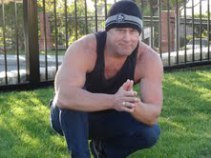
 PR Newswire articles
PR Newswire articles
Published on February 16, 2013 16:50
February 5, 2013
Check Out This Ad For Prison Riot, A True Crime Story of Surviving a Gang War in Prison (Prison Killers – Book 5) by Glenn Langohr
 about his book: Lock Up Abroad contacted me to be on their show this year as they focus on Prison Life in the U.S. They want me to be in one of the final episodes to end with a redemptive theme. While being interviewed they asked me, “How much of your books are fiction?” I told them, “Society can’t handle all of the truth!” With this in mind, I wrote Prison Riot.Prison Riot is a true crime memoir where BJ, a young and battle tested inmate serving time on drug charges, gets caught up in a Mexican gang war over gangland tattoos. The prison explodes into chaos as each building erupts in deadly violence. For BJ, the war isn’t over when he and over a hundred inmates get housed in solitary confinement, it’s just beginning. For getting involved, he’s labeled a southern Mexican gangster.• “Wow! I read this book in one sitting, I couldn’t put it down. The way Mr. Langhor writes this book, made me feel like I was in that cell woth B.J. and Giant, I actually felt claustrophobic and trapped and could almost feel the pepper spray burning me.” — MSMAD 2009• “I am reading all of this authors books and this one is incredible. I can’t even imagine having to survive through what this guy has lived through. Prison war riot, Solitary confinement, respect, pride, survival. Forget reality TV, this is much better, it is reality!” — JDOGTo check out all 8 of Glenn Langohr’s prison books in print, kindle or audio book ( Listen for a free sample ) go here http://www.amazon.com/-/e/B00571NY5A
about his book: Lock Up Abroad contacted me to be on their show this year as they focus on Prison Life in the U.S. They want me to be in one of the final episodes to end with a redemptive theme. While being interviewed they asked me, “How much of your books are fiction?” I told them, “Society can’t handle all of the truth!” With this in mind, I wrote Prison Riot.Prison Riot is a true crime memoir where BJ, a young and battle tested inmate serving time on drug charges, gets caught up in a Mexican gang war over gangland tattoos. The prison explodes into chaos as each building erupts in deadly violence. For BJ, the war isn’t over when he and over a hundred inmates get housed in solitary confinement, it’s just beginning. For getting involved, he’s labeled a southern Mexican gangster.• “Wow! I read this book in one sitting, I couldn’t put it down. The way Mr. Langhor writes this book, made me feel like I was in that cell woth B.J. and Giant, I actually felt claustrophobic and trapped and could almost feel the pepper spray burning me.” — MSMAD 2009• “I am reading all of this authors books and this one is incredible. I can’t even imagine having to survive through what this guy has lived through. Prison war riot, Solitary confinement, respect, pride, survival. Forget reality TV, this is much better, it is reality!” — JDOGTo check out all 8 of Glenn Langohr’s prison books in print, kindle or audio book ( Listen for a free sample ) go here http://www.amazon.com/-/e/B00571NY5A
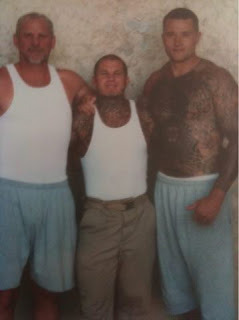
PR Newswire articles
Published on February 05, 2013 20:22
February 3, 2013
UNDERDOG, A True Crime Thriller of Prison Life (Prison Killers - Book 4) by Glenn Langohr is Getting Great Reviews
Glenn Langohr
 about his book: I wrote Underdog while some of the California prisoners were involved in a peaceful hunger strike to get attention to their plight. I published this book one day after Christian Gomez died from not eating at Corcoran State Prison. This book is especially important to me because I spent 10 years in prison on drug charges and turned my life around through writing while in solitary confinement where the hunger strikes started.
about his book: I wrote Underdog while some of the California prisoners were involved in a peaceful hunger strike to get attention to their plight. I published this book one day after Christian Gomez died from not eating at Corcoran State Prison. This book is especially important to me because I spent 10 years in prison on drug charges and turned my life around through writing while in solitary confinement where the hunger strikes started.“And ex-con Langohr can describe the hell of life inside better than any other writer. His vivid passages on just surviving in prison describe a nightmare we’d rather not know about. He compares the plight of abandoned dogs, locked and horribly mistreated in rows of cages in animal shelters, to California prison inmates, locked and abused in the same cages.”
— John South, American Media• “This book does not glamorize prison life but rather accurately reports on the cruel reality, which may shock and frighten many readers. The author skillfully makes the point that the general public has more awareness for and more compassion for caged dogs than for prisoners.”
— JT Kalnay Attorney
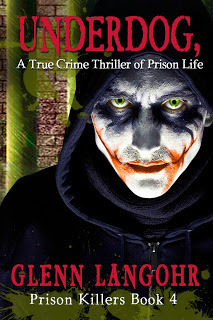
Copies for review and interviews available###rollcallthebook@gmail.com949-354-7176
PR Newswire articles
Published on February 03, 2013 07:49
January 31, 2013
Glenn Langohr's Prison Memoir Got Another Great Review From a Criminal Justice Professor at U.C. Irvine
Professor Keramet Reiter, an Associate Professor in Criminal Justice at U.C. Irvine came across Glenn Langohr's books about prison and asked for an interview. Glenn Langohr agreed on one condition, that she have her students read and review it.
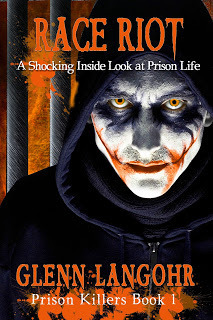
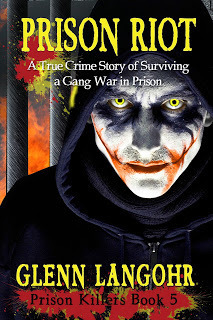

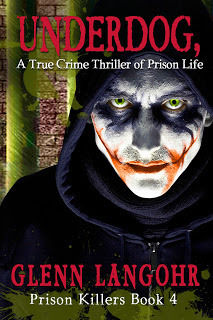
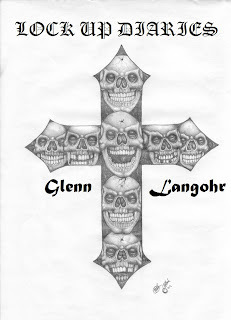
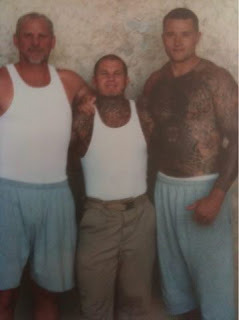
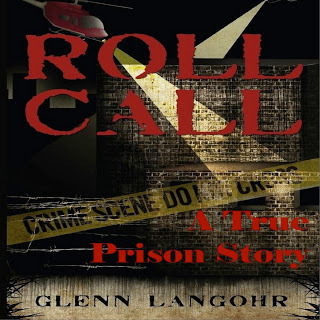
Glenn Langohr found out that Professor Reiter focused on the prison side of the Criminal Justice system and asked her to read his book Underdog, A True Crime Thriller of Prison Life, the fourth book in the series. Glenn Langohr has written eight books about the drug war and prison life after serving time in prison for drug charges. He started writing from a cell in solitary after a prison riot and now speaks to students and civic groups about his writing and history.
In Underdog, A True Crime Thriller of Prison Life, Glenn Langohr points out the flaws in the gang validation process that keeps inmates house in solitary confinement indefinitely. He takes his own experience in riots and the issues that cause them and takes the reader on a journey through the process.
B.J and Damon are two White inmates who get involved in a gang war in a California maximum security prison. The prison administration realizes B.J's sentence is up and they falsely blame Damon for organizing the inmates and use his gangland tattoos to send him to the Super Max at Pelican Bay.
"This is a page-turner of a read about life inside the California prison system, told from the perspective of an experienced and thoughtful former prisoner, who describes remaining unaffiliated with the various prison gangs, but collaborating and mediating among them to maintain peace on the prison yards.This first-hand account of the California prison system is not only interesting, but provides a useful counterpoint (and compliment) to more academic accounts of prison life." U.C. Irvine Professor Reiter
Copies for review and interviews upon request.
http://www.audiobookprisonstories.com
rollcallthebook@gmail.com
949-354-7176
About Lockdown Publishing:
Glenn Langohr has a purpose: he writes to shine a light inside our prison systems and to help others turn their lives around. He draws on personal experience. Glenn Langohr ran away from a broken home and entered the drug war with abandon. Business with the Mexican Mafia and Hell's Angels became a way of life until the Criminal Justice system interrupted him. In prison he was involved in riots and spent years in the hole. From solitary confinement he started writing and hasn't stopped since. Now, he is an usher at his church, speaks as a guest Lecturer at colleges and writes articles for newspapers. "I want to show the world and the students and leaders of tomorrow, that we are only building bigger criminals by locking up low level offenders. In prison, an addiction is bred into an affliction much harder to escape." Help him show the world redemption is possible, buy and share his books.
Company Contact Information
Lockdown Publishing PR Newswire articles







Glenn Langohr found out that Professor Reiter focused on the prison side of the Criminal Justice system and asked her to read his book Underdog, A True Crime Thriller of Prison Life, the fourth book in the series. Glenn Langohr has written eight books about the drug war and prison life after serving time in prison for drug charges. He started writing from a cell in solitary after a prison riot and now speaks to students and civic groups about his writing and history.
In Underdog, A True Crime Thriller of Prison Life, Glenn Langohr points out the flaws in the gang validation process that keeps inmates house in solitary confinement indefinitely. He takes his own experience in riots and the issues that cause them and takes the reader on a journey through the process.
B.J and Damon are two White inmates who get involved in a gang war in a California maximum security prison. The prison administration realizes B.J's sentence is up and they falsely blame Damon for organizing the inmates and use his gangland tattoos to send him to the Super Max at Pelican Bay.
"This is a page-turner of a read about life inside the California prison system, told from the perspective of an experienced and thoughtful former prisoner, who describes remaining unaffiliated with the various prison gangs, but collaborating and mediating among them to maintain peace on the prison yards.This first-hand account of the California prison system is not only interesting, but provides a useful counterpoint (and compliment) to more academic accounts of prison life." U.C. Irvine Professor Reiter
Copies for review and interviews upon request.
http://www.audiobookprisonstories.com
rollcallthebook@gmail.com
949-354-7176
About Lockdown Publishing:
Glenn Langohr has a purpose: he writes to shine a light inside our prison systems and to help others turn their lives around. He draws on personal experience. Glenn Langohr ran away from a broken home and entered the drug war with abandon. Business with the Mexican Mafia and Hell's Angels became a way of life until the Criminal Justice system interrupted him. In prison he was involved in riots and spent years in the hole. From solitary confinement he started writing and hasn't stopped since. Now, he is an usher at his church, speaks as a guest Lecturer at colleges and writes articles for newspapers. "I want to show the world and the students and leaders of tomorrow, that we are only building bigger criminals by locking up low level offenders. In prison, an addiction is bred into an affliction much harder to escape." Help him show the world redemption is possible, buy and share his books.
Company Contact Information
Lockdown Publishing PR Newswire articles
Published on January 31, 2013 15:11
January 10, 2013
That Girl Reads Interviews Ex-Con Turned Best Selling Author Glenn Langohr
TGR: Which actor would you want to portray you if your books were turned into movies? For more, check out her site! http://thatgirlreads.blogspot.com/2013/01/author-interview-glenn-langohr.html
PR Newswire articles
Published on January 10, 2013 23:38
January 4, 2013
Check Out This Interview: From Ex-Con To Best Selling Author
Check Out This Interview: From Ex-Con To Best Selling Author http://www.authorscourtwithme.blogspo...
Glenn T Langohr - Ex-con to Best Seller Author Life Story Book Interview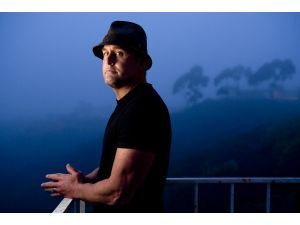
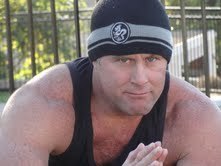
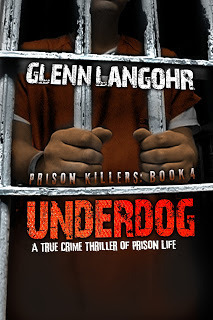
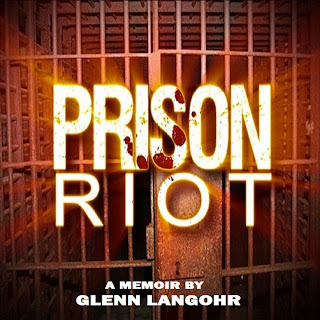
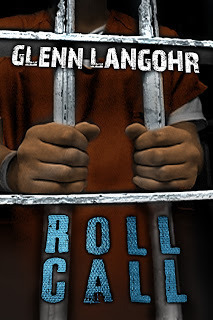
Interview Highlight
I'm honored and thrilled to be interviewing Glenn Langohr author of Roll Call, Upon Release From Prison, Race Riot, Lock Up Diaries, Gladiator, Underdog, Prison Riot and Pelican Bay Riot, on I Am Darmie Orem and Authors' Curtilage with Darmie Orem.
Welcome Langohr.
“Thank you, Darmie.”
Langohr, 42, has spent 10 1/2. Years - approximately a quarter of his life - in prison, the result of drug - related convictions which has evoked his desire to write and write and write some more about the story of his life after he found God and a calling as a writer.
The salvation found well-built author ran away at 12. By 15, he was selling pot supplied to him by Mexican Smuggler. By 18 he was serving his first hold in jail. When he got out he resumed dealing drugs, this time he became one of the busiest amphetamine dealers in South Orange County and also became addict.
Langohr in all has written eight books. He has been invited to speak before criminal justice classes at colleges.
His most recent book Underdog, a crime thriller true story opened with: Sergeant Torrez crowding the convicts’ cell door with a smirk on his face with six IGI Gooners behind him.
Glenn as the character Bj in the book said, they called the inmate Gang Investigators Gooners because they wore similar uniforms to the regular prison guards and had additional black stitching on their shoulders and chest that resembled tattoos to signify they were in charge of deciphering; who the gangsters were, usually was based on their tattoos...
Using the experiences of one's life and transforming them into fiction can be a great challenge. Langohr, how were you able to pull this off?
“I use the true colors of life and paint on a fictional landscape to protect the innocent and the not so innocent. “
From the opening of Underdog one could see that the story is tight and compelling. Did you have some sort of writing courses during your years behind bars?
“No. That is what we need to do as a society. Help prisoners get instructional writing guides and more learning power. What I did is pray and read the Bible every day. I also read everything else I could get my hands on. God answered my prayers and led me to write. Out of the blue, I got a letter from a Pastor by the name of David Hocking from the church, Hope For Today. From that point on I communicated with him and he sent me information on how to publish books and make movies. That lit a fire of encouragement inside of me and I kept on writing with new vigor.”
Obviously, you consider your life as some big book and ain't ashamed to go on talking about it. Why did you use life as novels?
“I wanted to change the destructive path I was on. When I ran away from a divorced family at the age of 12, I was hurt emotionally and had to find a way to soothe the pain. The streets and the drug world was an exciting distraction at first but always ends with prison, insanity or a coffin. I will use a quote from my novel Roll Call to make the point. "Sow a bad thought and reap an action. Sow an action and reap a habit. Sow a habit and reap a character. Sow a character and reap a destiny." I wanted to open up people's eyes that God can turn any life around, even those that society has cast aside as the worst of the worst. It all starts with changing your thoughts.”
When did you first get down events in your life on the paper? Did you start by keeping a journal or simply started writing it as a book?
“I started writing from a prison cell in solitary confinement with the hope that I could write a novel about the drug war that would turn into a movie or TV series. I woke up at 4 AM and wrote sporadically all day and night. ”
How did you act when it occurred to you that you could turn your life experiences into books? Or was it somebody that opened your eyes that you could do that?
“After a year of writing I saw the light. I knew the content I was writing about was destined to be read and understood. I got excited and started pacing the length of the cell back and forth and it helped me think even deeper.”
What's the central conflict of the novel Underdog?
“In California and other prisons in the U.S, prison tattoos on inmates are being used as evidence to classify prisoners to solitary confinement where they don't get to see the sun ever again. While I was in prison the Criminal Justice system sent way to many people to prison for drug crimes. That filled the prisons up to double their capacities. It made prison a more violent place and a bigger breeding ground for gangs. It was harder and harder to keep the peace and disputes arose over who could use things like tables, work out bars and showers. More and more riots happened. I was involved in a few that I did everything I could to avoid. When I went to the hole, solitary confinement, I saw first hand how the prison was falsely labeling prisoners as bad influencers based on their tattoos. I published Underdog one day after a prisoner died in a hunger strike over the same issues. “
You've been quite creative in transforming your life experiences into books. Any tips for those willing to also put out their life stories?
“Write every day until you are waking up before everyone else. Write before you get distracted! Don't worry about it being perfect or you will never get started. Keep in mind that you have to develop conflict and characters early. Always remember that any script must have a beginning, middle and end. So break it into those pieces and it will come together eventually. Know that you have to rewrite the script many times so the first time don't hold back. You can cut pieces out later. Just do it.”
Is there any word of advice for strayed children doing drugs?
“Don't do it! God is so amazing and He made us in His image. Drugs are poison and pollute the brain and worse, they stain the very soul. You only have one brain, one soul and one body, treat yourself like a Holy temple for God. If you are a child who is lost, ask for help! Go to all the churches and boldly tell them your problems. If nobody is helping you, don't worry. God will! While you are suffering, look at it as an opportunity to help other people who are suffering and you won't be suffering as much!”
Now that you are reborn again into a clean path, what sort of man would you describe yourself?
“I used to have to work out for 4 hours a day to deal with life and feel good. I found a way better way. If you sing worship songs to the Lord you feel the same way and get even better looking at the same time! It's true; singing makes your cheek bones more beautiful. The older and wiser I get, the more I realize I need God to direct my path.”
Are there any life's failures which could make you go back to your old ways?
“There is no way! I'm still hyper sensitive and all the same pains and temptations still exist, but I don't want to lose this connection I have with God. The Bible has proven itself to be the Holy Word of God by how many prophecies have been fulfilled. With that said, I believe the end is near and all this craziness is the last gasp of a fallen world. I want to be about God's Kingdom, not the devils.”
Please provide links to your Website/blog, your social media profiles, and links to purchase your book (s).
“Here are links to all my books in the U.S. in print and kindle”
Books in Print and in Kindle
Kindle
Books in Audio
Glenn's Friends' Facebook Page
Facebook Fan Page
Glenn's Google Site
His Wordpress Site
Besides turning your life story into books, do you have plans of selling them to filmmakers for movie adaptation? I think you should contact FeatureWorld and see what they have to offer you if you've got any plans like that. Or you market all your stories at TVFilmRights
TV film rights is the Film, Television, and Publishing Industry's premiere online source for selling different kinds of scripts. There are always producers scouting movie ideas and screenplays on the site.
“Thanks for the links to sell the stories to the movies!”
Have you read through Glenn T Langohr interview? What do you think of him? Don't you think he's a product of grace everyone should reckon with? Feel free to submit questions for him at his email address and he will reply them promptly.
Once again Glenn, I'm honored and thrilled to have you stop by at my blogs.
“The pleasure is all my. Thank you, Darmie.”
PR Newswire articles
Glenn T Langohr - Ex-con to Best Seller Author Life Story Book Interview





Interview Highlight
I'm honored and thrilled to be interviewing Glenn Langohr author of Roll Call, Upon Release From Prison, Race Riot, Lock Up Diaries, Gladiator, Underdog, Prison Riot and Pelican Bay Riot, on I Am Darmie Orem and Authors' Curtilage with Darmie Orem.
Welcome Langohr.
“Thank you, Darmie.”
Langohr, 42, has spent 10 1/2. Years - approximately a quarter of his life - in prison, the result of drug - related convictions which has evoked his desire to write and write and write some more about the story of his life after he found God and a calling as a writer.
The salvation found well-built author ran away at 12. By 15, he was selling pot supplied to him by Mexican Smuggler. By 18 he was serving his first hold in jail. When he got out he resumed dealing drugs, this time he became one of the busiest amphetamine dealers in South Orange County and also became addict.
Langohr in all has written eight books. He has been invited to speak before criminal justice classes at colleges.
His most recent book Underdog, a crime thriller true story opened with: Sergeant Torrez crowding the convicts’ cell door with a smirk on his face with six IGI Gooners behind him.
Glenn as the character Bj in the book said, they called the inmate Gang Investigators Gooners because they wore similar uniforms to the regular prison guards and had additional black stitching on their shoulders and chest that resembled tattoos to signify they were in charge of deciphering; who the gangsters were, usually was based on their tattoos...
Using the experiences of one's life and transforming them into fiction can be a great challenge. Langohr, how were you able to pull this off?
“I use the true colors of life and paint on a fictional landscape to protect the innocent and the not so innocent. “
From the opening of Underdog one could see that the story is tight and compelling. Did you have some sort of writing courses during your years behind bars?
“No. That is what we need to do as a society. Help prisoners get instructional writing guides and more learning power. What I did is pray and read the Bible every day. I also read everything else I could get my hands on. God answered my prayers and led me to write. Out of the blue, I got a letter from a Pastor by the name of David Hocking from the church, Hope For Today. From that point on I communicated with him and he sent me information on how to publish books and make movies. That lit a fire of encouragement inside of me and I kept on writing with new vigor.”
Obviously, you consider your life as some big book and ain't ashamed to go on talking about it. Why did you use life as novels?
“I wanted to change the destructive path I was on. When I ran away from a divorced family at the age of 12, I was hurt emotionally and had to find a way to soothe the pain. The streets and the drug world was an exciting distraction at first but always ends with prison, insanity or a coffin. I will use a quote from my novel Roll Call to make the point. "Sow a bad thought and reap an action. Sow an action and reap a habit. Sow a habit and reap a character. Sow a character and reap a destiny." I wanted to open up people's eyes that God can turn any life around, even those that society has cast aside as the worst of the worst. It all starts with changing your thoughts.”
When did you first get down events in your life on the paper? Did you start by keeping a journal or simply started writing it as a book?
“I started writing from a prison cell in solitary confinement with the hope that I could write a novel about the drug war that would turn into a movie or TV series. I woke up at 4 AM and wrote sporadically all day and night. ”
How did you act when it occurred to you that you could turn your life experiences into books? Or was it somebody that opened your eyes that you could do that?
“After a year of writing I saw the light. I knew the content I was writing about was destined to be read and understood. I got excited and started pacing the length of the cell back and forth and it helped me think even deeper.”
What's the central conflict of the novel Underdog?
“In California and other prisons in the U.S, prison tattoos on inmates are being used as evidence to classify prisoners to solitary confinement where they don't get to see the sun ever again. While I was in prison the Criminal Justice system sent way to many people to prison for drug crimes. That filled the prisons up to double their capacities. It made prison a more violent place and a bigger breeding ground for gangs. It was harder and harder to keep the peace and disputes arose over who could use things like tables, work out bars and showers. More and more riots happened. I was involved in a few that I did everything I could to avoid. When I went to the hole, solitary confinement, I saw first hand how the prison was falsely labeling prisoners as bad influencers based on their tattoos. I published Underdog one day after a prisoner died in a hunger strike over the same issues. “
You've been quite creative in transforming your life experiences into books. Any tips for those willing to also put out their life stories?
“Write every day until you are waking up before everyone else. Write before you get distracted! Don't worry about it being perfect or you will never get started. Keep in mind that you have to develop conflict and characters early. Always remember that any script must have a beginning, middle and end. So break it into those pieces and it will come together eventually. Know that you have to rewrite the script many times so the first time don't hold back. You can cut pieces out later. Just do it.”
Is there any word of advice for strayed children doing drugs?
“Don't do it! God is so amazing and He made us in His image. Drugs are poison and pollute the brain and worse, they stain the very soul. You only have one brain, one soul and one body, treat yourself like a Holy temple for God. If you are a child who is lost, ask for help! Go to all the churches and boldly tell them your problems. If nobody is helping you, don't worry. God will! While you are suffering, look at it as an opportunity to help other people who are suffering and you won't be suffering as much!”
Now that you are reborn again into a clean path, what sort of man would you describe yourself?
“I used to have to work out for 4 hours a day to deal with life and feel good. I found a way better way. If you sing worship songs to the Lord you feel the same way and get even better looking at the same time! It's true; singing makes your cheek bones more beautiful. The older and wiser I get, the more I realize I need God to direct my path.”
Are there any life's failures which could make you go back to your old ways?
“There is no way! I'm still hyper sensitive and all the same pains and temptations still exist, but I don't want to lose this connection I have with God. The Bible has proven itself to be the Holy Word of God by how many prophecies have been fulfilled. With that said, I believe the end is near and all this craziness is the last gasp of a fallen world. I want to be about God's Kingdom, not the devils.”
Please provide links to your Website/blog, your social media profiles, and links to purchase your book (s).
“Here are links to all my books in the U.S. in print and kindle”
Books in Print and in Kindle
Kindle
Books in Audio
Glenn's Friends' Facebook Page
Facebook Fan Page
Glenn's Google Site
His Wordpress Site
Besides turning your life story into books, do you have plans of selling them to filmmakers for movie adaptation? I think you should contact FeatureWorld and see what they have to offer you if you've got any plans like that. Or you market all your stories at TVFilmRights
TV film rights is the Film, Television, and Publishing Industry's premiere online source for selling different kinds of scripts. There are always producers scouting movie ideas and screenplays on the site.
“Thanks for the links to sell the stories to the movies!”
Have you read through Glenn T Langohr interview? What do you think of him? Don't you think he's a product of grace everyone should reckon with? Feel free to submit questions for him at his email address and he will reply them promptly.
Once again Glenn, I'm honored and thrilled to have you stop by at my blogs.
“The pleasure is all my. Thank you, Darmie.”
PR Newswire articles
Published on January 04, 2013 19:10
January 1, 2013
PRISONERS FAMILIES VOICES UK: Prison is a waste of money? - By Jan
PRISONERS FAMILIES VOICES UK: Prison is a waste of money? - By Jan: Festive greetings! I don't have a loved one in prison but I take an interest in the criminal justice system so hope you don't mind me con... This is a great point. It is good to see regular citizens who recognize that prisons are not serving their intended purpose, to rehabilitate!PR Newswire articles
Published on January 01, 2013 09:53
December 21, 2012
PRISONERS FAMILIES VOICES UK: Author Glenn Langohr
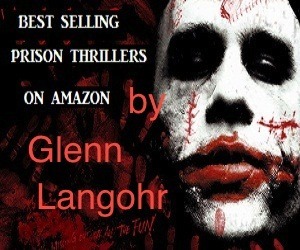 PRISONERS FAMILIES VOICES UK: Author Glenn Langohr: THE ORANGE COUNTY REGISTER LIFE Over the past few months, Author Glenn Langohr and I have corresponded and b... Whoo hoo! My friend Alison in the UK who writes for Prizon Widow hooked me up on her page! She is a great writer and friend. Check out her site and look for more of her stories when I post them. I can't wait to sell enough books and audio books to visit the UK and meet her!PR Newswire articles
PRISONERS FAMILIES VOICES UK: Author Glenn Langohr: THE ORANGE COUNTY REGISTER LIFE Over the past few months, Author Glenn Langohr and I have corresponded and b... Whoo hoo! My friend Alison in the UK who writes for Prizon Widow hooked me up on her page! She is a great writer and friend. Check out her site and look for more of her stories when I post them. I can't wait to sell enough books and audio books to visit the UK and meet her!PR Newswire articles
Published on December 21, 2012 09:08



